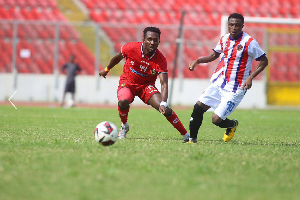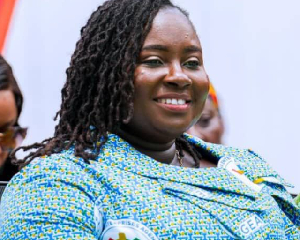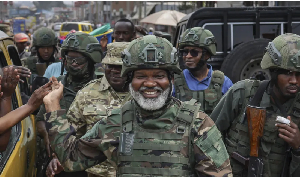Accra, (Greater Accra) 30 Oct.,
Professor Ernest Dumor, member of the Electoral Commission (EC), today warned that if the economic and social rights of Ghanaians are down-played in favour of political rights, the country's democratic experiment would fail. ''We have all this while talked a lot about our political and civic rights forgetting that our very survival depends on these economic and social rights.'' Prof. Dumor was delivering the keynote address at a two-day conference dubbed ''The 1996 elections and Democratic consolidation in Ghana.'' Forty participants from academia, political parties and public would be discussing a research project on democracy in Ghana undertaken by the Department of Political Science, University of Ghana, and sponsored by the Danish Embassy. The project consisted of a pre-election and post-election surveys held in 27 randomly selected constituencies covering some 2,700 respondents throughout the country with the exception of Upper East and Upper West Regions. Prof. Dumor, a retired Political Science lecturer, said: ''we need to fix a healthy balance between the infrastructure of democracy (basic needs of life), the technostructure (institutions) and the superstructure (civic culture) if we are to sustain the democratic culture. ''In our attempt to evaluate democracy in Ghana we should ask for the outcome of the sacrifice that the nation's founding fathers and citizenry have made to establish and consolidate democracy. ''We should also recognise the realities and idealisms of democracy and see where we are.'' On the 1996 elections which cost the nation some 25 billion cedis, Prof. Dumor said Ghanaians have proved that they are ready for peaceful, legal and civilized change of government. He said he recognizes the difficulty associated with the acceptance of election results but said the nation needs more elections before all will come to terms with election realities. Prof. Dumor said if the EC plans and executes a high quality election in the year 2000 then the consolidation and legitimization of the nation's democratic process would have begun. Prof. Dumor said though the issue of ethnicity in politics has received public attention, much research has not gone into it thus making it a little difficult to understand. He said what is important is ''we should determine whether this ... would be a strength or a weakness.'' If tribalism really exists in our system then the nation has a long and bitter war to fight to save its democracy, he added. Prof. G.A.R Aquandah, Dean, Faculty of Social Sciences who presided, said the nation stands to lose a lot if morality is not injected into governance.
General News of Friday, 31 October 1997
Source: --
















